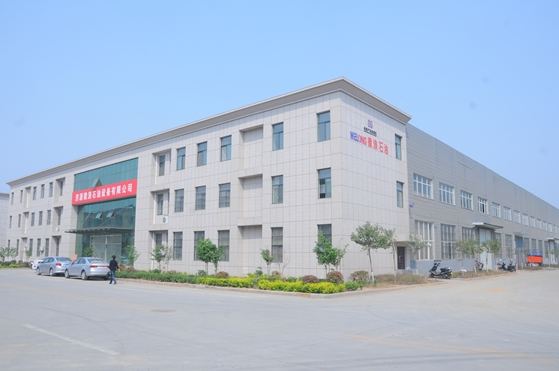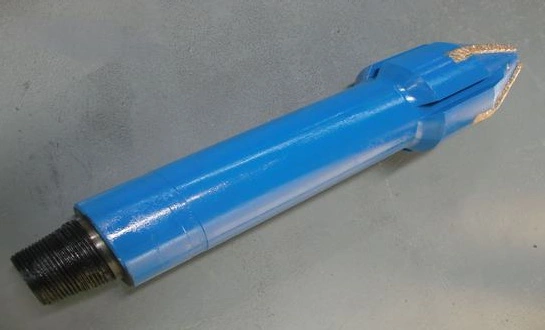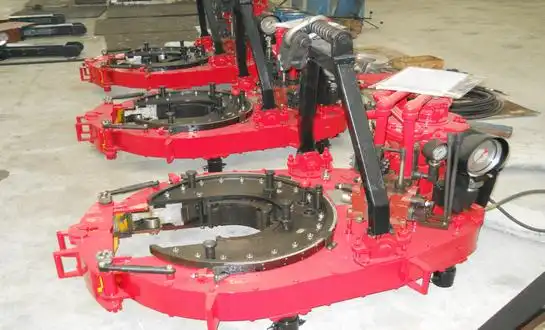The process of custom roll manufacturing involves considering various factors such as the type of steel being rolled, the desired product characteristics, and the specific requirements of the rolling mill. By tailoring roll designs and materials, manufacturers can enhance roll longevity, improve product quality, and increase overall mill productivity. Custom rolls may incorporate specialized features like high-speed capabilities or no-damage surfaces, addressing unique challenges in steel production.
Material selection is a critical aspect of custom roll manufacturing. Depending on the application, manufacturers may use different steel grades, including forged steel hardening rolls, standard work rolls, or high-speed rolls. The choice of material significantly impacts the roll's performance, durability, and ability to maintain consistent quality throughout its service life.
What are the benefits of custom roll manufacturing for steel mills?
Enhanced Product Quality
Custom roll manufacturing offers a unique advantage for steel mills by allowing them to create rolls that are specifically designed to suit the requirements of various steel grades and the desired characteristics of the final product. By tailoring the roll material composition, surface hardness, and geometry, mills can ensure that the rolling process is optimized for the specific properties of the steel being processed. This precision results in a more consistent, uniform product, which is crucial for industries where stringent quality standards are essential. Whether it’s for automotive applications, construction, or high-performance industrial components, custom rolls help produce steel that meets exacting specifications, thereby reducing the risk of defects and ensuring that each batch of steel maintains consistent thickness, surface finish, and mechanical properties.
Improved Operational Efficiency
When mills use custom rolls, they can significantly enhance their overall operational efficiency. These tailored mill rolls are designed with the optimal performance characteristics in mind, meaning they require less frequent adjustments or replacements. This directly contributes to reducing downtime related to roll changes, which is often a time-consuming process. In addition, custom rolls can reduce the frequency of necessary maintenance, as they are more resistant to wear and tear. The improved efficiency extends to other areas of mill operations, such as reducing combustion frequency and streamlining the grinding process, all of which ultimately result in increased throughput. The more efficient the rolling process, the higher the production capacity, leading to a reduction in operational costs and an overall boost in profitability for steel mills.
Extended Roll Life
One of the most significant advantages of custom roll manufacturing is the extended lifespan of the rolls themselves. Custom-designed rolls are built to withstand the specific conditions present in each mill, whether that’s the type of steel being processed or the intensity of the rolling process. By selecting appropriate materials and applying advanced hardening techniques, these rolls are able to resist wear, fatigue, and damage over extended periods. As a result, the need for frequent roll replacements is reduced, leading to fewer disruptions in production and lower overall maintenance costs. The long-term durability of custom rolls not only minimizes downtime but also contributes to the overall cost-efficiency of the steel mill, helping companies avoid unexpected expenses and keep production running smoothly.
How to specify requirements for custom roll production
Analyzing Mill Conditions
To effectively specify requirements for custom roll production, steel mills must conduct a thorough analysis of their operating conditions. This includes assessing factors such as rolling speeds, applied forces, temperature variations, and the types of steel being processed. Understanding these parameters allows for the precise tailoring of roll characteristics to match the mill's specific needs.
Defining Performance Goals
Clear performance goals should be established when specifying custom roll requirements. These may include targets for product surface quality, dimensional accuracy, roll wear rates, and overall mill productivity. By clearly defining these objectives, manufacturers can design rolls that are optimized to meet or exceed the desired performance criteria.
Collaborating with Roll Manufacturers
Effective collaboration between steel mills and roll manufacturers is essential for successful custom roll production. Mills should provide detailed information about their processes, challenges, and expectations. In turn, manufacturers can offer expertise on material selection, roll design features, and surface treatments that best address the mill's specific requirements. This collaborative approach ensures that the custom mill rolls are tailored to deliver optimal performance in the intended application.

Technologies involved in custom roll fabrication
Advanced Casting and Forging Techniques
Custom roll fabrication often leverages cutting-edge casting and forging techniques to produce rolls with superior metallurgical properties. These advanced processes enable manufacturers to control the grain structure of the roll material, optimizing it for strength, durability, and overall mechanical performance. One notable technique is centrifugal casting, which allows for the creation of rolls with exceptional uniformity in material composition, as well as reduced internal stresses that could lead to defects or premature failure. The precision achieved in these casting and forging methods ensures that the rolls meet the specific demands of steel mills, improving both the quality and consistency of the steel produced. By utilizing these technologies, manufacturers can create rolls that offer enhanced resistance to wear and fatigue, ensuring they perform reliably over long production cycles in even the most challenging mill environments.
Heat Treatment and Surface Engineering
The role of heat treatment in custom roll fabrication cannot be overstated, as it allows manufacturers to fine-tune the hardness and microstructure of the roll material to suit specific applications. By carefully controlling the heating and cooling processes, custom rolls can be made to have tailored hardness profiles, which are essential for achieving optimal performance under varying loads and temperatures. Surface engineering techniques are equally important, as they improve the roll’s resistance to wear, reduce friction, and extend its lifespan. Techniques such as induction hardening, chrome plating, or the application of specialized coatings are commonly used to strengthen the surface of the rolls, ensuring they withstand the high demands of industrial rolling operations. These heat treatment and surface engineering processes work together to deliver a roll that not only lasts longer but also performs more efficiently in the harsh conditions of a steel mill.
Precision Machining and Finishing
Once the custom rolls have been cast, forged, and heat-treated, the final stages of fabrication involve precision machining and finishing processes to achieve the required dimensions and surface characteristics. These processes are essential for ensuring that the rolls meet strict tolerances, with the correct diameter, profile, and surface roughness. State-of-the-art CNC machining centers are employed to achieve high precision, while specialized grinding equipment is used to refine the surface to the desired smoothness. These finishing techniques are critical for producing rolls that can operate with minimal vibration, maintain uniform pressure distribution, and deliver high-quality steel products. The combination of advanced machining and finishing ensures that each roll is capable of maintaining consistent performance throughout its operational life, contributing to the overall efficiency and quality of the steel mill’s production processes.
Source: CHINA WELONG-Oilfield tools Manufacturer
FAQ about Mill Rolls
What factors influence the choice of roll material?
The selection of roll material depends on several factors, including the type of steel being rolled, rolling temperatures, desired surface finish, and production rates. Commonly used materials include various grades of cast iron, forged steel, and high-speed steel alloys. Each material offers different combinations of hardness, wear resistance, and thermal properties suitable for specific rolling applications.
How often should mill rolls be replaced?
The replacement frequency of mill rolls varies depending on factors such as the roll material, rolling conditions, and quality requirements. Some rolls may need replacement after processing a few thousand tons of steel, while others can last for tens of thousands of tons. Regular monitoring of roll performance and wear is essential to determine the optimal replacement schedule for maintaining product quality and mill efficiency.
Can custom rolls improve energy efficiency in steel mills?
Yes, custom-designed rolls can contribute to improved energy efficiency in steel mills. By optimizing roll geometries, surface finishes, and material properties, custom rolls can reduce rolling forces and minimize energy consumption during the rolling process. Additionally, longer-lasting rolls reduce the energy required for frequent roll changes and associated production interruptions.
Custom roll manufacturing for steel mills is a complex process that requires expertise in metallurgy, engineering, and steel production. By tailoring rolls to specific mill requirements, manufacturers can significantly enhance the performance, efficiency, and product quality of steel rolling operations. As the steel industry continues to evolve, custom roll manufacturing will play an increasingly important role in meeting the challenges of modern steel production.
For more information about custom mill roll manufacturing and other oilfield products, please contact us at oiltools15@welongpost.com. Welong is committed to providing high-quality, customized solutions for the oil and gas industry, including specialized rolling mill equipment.





